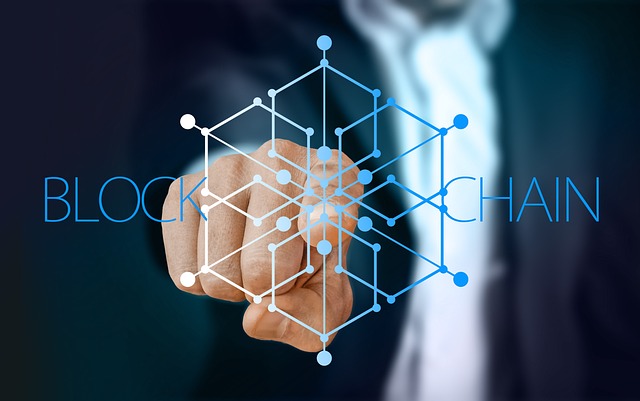Blockchain Technology: The Solution to Modernizing Supply Chains 2023

Introduction
Blockchain technology has taken the world by storm, promising to revolutionize various industries. One of these is supply chain management, which has long been in need of modernization.
Further, The traditional systems for managing supply chains have proven to be inefficient and prone to errors, resulting in delays and increased costs.
In this blog post, we will explore how blockchain technology can solve these issues and provide a more efficient way of managing supply chains. So buckle up and get ready to discover the potential benefits that blockchain technology can bring.
What is blockchain technology?
Blockchain technology is a decentralized and transparent system that allows for secure transactions to be made without the need for intermediaries. It is essentially a digital ledger that records all transactions in real-time, which can be accessed by anyone with internet access.
Further, The blockchain operates on a peer-to-peer network where each node has an updated copy of the ledger, making it nearly impossible to tamper with or manipulate data. The use of cryptography ensures that each transaction is secure and cannot be altered once added to the blockchain.
Moreover, Unlike traditional databases, where information is stored in one central location, the decentralized nature of blockchain means that there are multiple copies of data spread across several nodes in different locations globally. Therefore, even if one node fails or gets hacked, others remain active and operational.
Importantly, Blockchain technology offers unparalleled transparency and security while reducing costs associated with intermediaries such as banks or other financial institutions.

How blockchain technology works?
Blockchain technology is a decentralized and distributed ledger system that records transactions on multiple computers simultaneously. In simpler terms, it’s like a digital ledger that contains information about every transaction ever made using it.
Further, Every block in the blockchain consists of several transactions, and each block is connected to the previous one in chronological order, forming a chain of blocks – hence the name “blockchain”.
Moreover, To add a new block to the chain, all participants on the network must agree that the transaction is valid. This process involves solving complex mathematical equations by powerful computers called nodes. Once verified, the new block gets added to all copies of the blockchain across all nodes.
Importantly, The data stored within each block is secured using cryptography techniques such as hash functions and public-key encryption. This ensures that once data has been added to a block, it cannot be altered or deleted without being detected by other participants on the network.
However, An important feature of blockchain technology is its transparency – every participant can see every transaction recorded in real-time throughout its lifecycle.
Additionally, because there isn’t any central authority controlling access or governance over this database-like structure; users have complete control over their own data privacy.

How can blockchain technology be used to modernize supply chains?
Blockchain technology can modernize supply chains by providing transparency, security, and efficiency. One of the main advantages of using blockchain in supply chain management is its ability to create a tamper-proof record of all transactions within the network.
This means that every party involved in the supply chain process has access to real-time information about product movements, inventory levels, and delivery times.
Another way blockchain can modernize supply chains is through smart contracts. These are self-executing agreements that automate contract enforcement and payment processes. Smart contracts can help streamline supplier relationships by reducing paperwork and administrative costs while ensuring compliance with agreed-upon terms.
In addition to this, blockchain technology can improve traceability across the entire supply chain network. By creating an immutable record of each step along the way – from raw materials sourcing to final delivery – it becomes easier for companies to track products and identify potential bottlenecks or quality issues.
Furthermore, blockchain enables greater collaboration among different parties in a supply chain ecosystem by making it possible for them to share data securely without compromising privacy or control over their own information.

The need for blockchain technology in supply chains
Supply chains are complex systems that involve multiple parties, transactions and movements of goods. This complexity often leads to inefficiencies, errors, delays and frauds that can negatively impact businesses, consumers and the environment.
Further, Traditional supply chain management methods rely on centralized databases and intermediaries to validate information, track assets and enforce rules. However, these methods have limitations in terms of transparency, security and scalability.
Moreover, This is where blockchain technology comes into play as a potential solution for modernizing supply chains. Blockchain is a decentralized ledger that enables secure and transparent record-keeping without the need for intermediaries or central authorities.
The use of blockchain in supply chains could provide several benefits such as increased visibility across the entire value chain, improved traceability of products from origin to destination, enhanced trust among stakeholders and reduced costs through automation.
However, blockchain technology can address some specific needs of supply chains such as compliance with regulatory requirements (e.g., customs documentation), prevention of counterfeiting or tampering (e.g., product authentication), reduction of waste or carbon footprint (e.g., sustainable sourcing) and optimization of inventory management (e.g., demand forecasting).
Therefore, the need for blockchain technology in supply chains stems from both operational challenges faced by businesses today as well as strategic opportunities for innovation in the future.

The benefits of using blockchain technology in supply chains
Blockchain technology presents a multitude of benefits when it comes to modernizing supply chains. One of the most significant advantages is enhanced transparency, as each participant has access to real-time data and can track every transaction that takes place within the chain. This increased visibility leads to greater accountability among stakeholders.
Moreover, Another benefit is improved efficiency, as blockchain eliminates intermediaries and redundant processes. With smart contracts embedded in the system, transactions are automated, reducing paperwork, processing times and costs.
Additionally, using blockchain for supply chain management enables secure sharing of information across all parties involved.
Furthermore, Blockchain also offers enhanced security features through its decentralized structure and cryptographic algorithms. The tamper-proof nature ensures that data cannot be altered or deleted without permission from all participants in the network – making it an ideal solution for securing sensitive business information.
The challenges of implementing blockchain technology in supply chains
While blockchain technology has the potential to revolutionize supply chains, there are still many challenges that need to be addressed before it can be widely adopted. One of the biggest challenges is interoperability, or the ability for different blockchains to communicate with each other.
In addition, there are concerns around scalability and performance. As more transactions are added to a blockchain network, it can become slower and less efficient. This could pose serious issues in a supply chain where transactions happen frequently and require real-time processing.
Further, Another challenge is data privacy and security. While blockchain is inherently secure due to its decentralized nature and cryptographic algorithms, sensitive information such as trade secrets or customer data must still be protected from unauthorized access.
Moreover, There is also the issue of regulatory compliance. Blockchain operates outside traditional legal frameworks and regulations may not yet exist for certain use cases in supply chain management. Companies will need to work closely with regulators to ensure they remain compliant while utilizing this new technology.
While these challenges may seem daunting at first glance, they represent opportunities for innovation and growth in the field of supply chain management through careful planning and collaboration between businesses across industries.
FAQS
Q: What is blockchain technology?
A: Blockchain technology is a decentralized digital ledger that allows for secure and transparent record-keeping of transactions.
Q: How can blockchain technology modernize supply chains?
A: Blockchain technology can modernize supply chains by providing a secure and transparent system for tracking goods as they move through the supply chain. This can help to reduce fraud, increase efficiency, and improve transparency.
Q: What are some benefits of using blockchain technology in supply chain management?
A: Some benefits of using blockchain technology in supply chain management include improved traceability and transparency, increased efficiency, reduced costs, and enhanced security.
Q: How does blockchain technology improve supply chain transparency?
A: Blockchain technology improves supply chain transparency by creating an immutable, decentralized ledger that allows all parties involved in a supply chain to view and track the movement of goods in real-time.
Q: Can blockchain technology help prevent fraud in the supply chain?
A: Yes, blockchain technology can help prevent fraud in the supply chain by providing a secure and transparent system for tracking goods, which can help to prevent the tampering of records and the introduction of counterfeit goods.
Q: What are some challenges to implementing blockchain technology in supply chain management?
A: Some challenges to implementing blockchain technology in supply chain management include cost, interoperability with existing systems, and the need for standardization and regulation.
Q: What industries are adopting blockchain technology for supply chain management?
A: Industries that are adopting blockchain technology for supply chain management include food and agriculture, pharmaceuticals, retail, and logistics.
Q: How can companies get started with implementing blockchain technology in their supply chain management?
A: Companies can get started with implementing blockchain technology in their supply chain management by conducting a feasibility study, identifying the right use case, selecting a suitable blockchain platform, and building a strong network of partners and stakeholders.
Conclusion
Blockchain technology has the potential to revolutionize supply chains and modernize them for the digital age. With its ability to provide secure, transparent and decentralized transactions, it can address many of the challenges faced by businesses in managing their supply chains.
From reducing costs and increasing efficiency to enabling better collaboration and trust among stakeholders, there are numerous benefits that can be gained from implementing this technology.
However, it is important to note that there are still some challenges associated with using blockchain technology in supply chains such as scalability issues or resistance from traditional players. Nonetheless, with ongoing research and development efforts being made worldwide we can expect these obstacles will eventually be overcome.



